The Importance of Business & Commercial HVAC Systems in Energy Efficiency
In the commercial sector, having efficient heating, ventilation, and air conditioning (HVAC) systems is essential for maintaining comfortable indoor environments. Business & commercial HVAC systems play a critical role not only in keeping temperatures regulated but also in enhancing energy efficiency. By optimizing HVAC operations, businesses can reduce energy costs, lower carbon footprints, and improve overall workplace comfort.
Energy efficiency in HVAC systems means using less energy to provide the same level of comfort. Achieving this can lead to significant savings. Here are key reasons why businesses should prioritize energy-efficient HVAC systems:
- Cost Savings: A well-maintained and energy-efficient HVAC system can lead to lower utility bills. According to the U.S. Department of Energy, high-efficiency units can cut energy usage by 10 to 50% compared to older systems.
- Enhanced Comfort: Modern HVAC systems come with advanced features like zoning technology, allowing businesses to control temperatures in different areas independently. This results in a more comfortable environment for employees and customers.
- Environmental Impact: Adopting energy-efficient HVAC solutions reduces greenhouse gas emissions. According to the Environmental Protection Agency, energy-efficient buildings can achieve significant reductions in CO2 emissions.
- Increased Property Value: Buildings equipped with high-efficiency HVAC systems can attract more tenants and customers. Potential buyers often look for features that contribute to lower operational costs.
To ensure HVAC systems remain energy efficient, regular maintenance is crucial. Here are some maintenance tips:
- Schedule routine inspections with a qualified technician.
- Change air filters regularly to maintain air quality and efficiency.
- Clean ducts and vents to ensure proper airflow.
- Calibrate thermostats for accurate temperature control.
Another way to improve energy efficiency is by investing in smart HVAC technology. Smart thermostats and sensors allow for real-time monitoring of HVAC systems, leading to optimized energy use. These smart devices can adjust settings based on occupancy and weather, significantly enhancing energy conservation.
Additionally, consider the benefits of upgrading to modern HVAC systems. High-efficiency systems often utilize advanced refrigerants that have a lower environmental impact. They are also designed to operate more quietly and may come with better warranties, offering peace of mind for commercial property owners.
| Type of HVAC System | Energy Efficiency Rating | Typical Applications |
|---|---|---|
| Packaged Systems | 13-20 SEER | Small to medium-sized commercial spaces |
| Split Systems | 14-26 SEER | Larger offices and buildings |
| Variable Refrigerant Flow | 20-30 SEER | Multifamily and large commercial buildings |
Adopting energy-efficient HVAC solutions is not just a trend—it’s a necessity in today’s business landscape. Building owners and managers can greatly benefit from the latest HVAC technologies and practices that contribute to sustainable operations. For tailored advice specific to your business needs, consult experts at organizations such as HVAC.com or ASHRAE, who provide resources and guidelines to enhance your HVAC-related decisions.
Investing in energy-efficient business & commercial HVAC systems offers numerous benefits, including reduced operational costs, improved comfort, and a positive environmental impact. As energy regulations continue to evolve, staying ahead by upgrading your HVAC systems will pay dividends in the long run.
Key Features to Look for When Choosing an HVAC System for Your Business
When selecting an HVAC system for your business, it’s essential to consider several key features to ensure efficient heating, ventilation, and air conditioning. The right system not only enhances comfort but also improves energy efficiency, which can save money in the long run. Here are the critical elements to keep in mind:
Energy Efficiency
One of the first aspects to evaluate is energy efficiency. Look for HVAC systems with high SEER (Seasonal Energy Efficiency Ratio) ratings. A higher SEER means that the system uses less energy to cool your space. This is crucial for reducing your monthly utility bills. Additionally, consider systems that are ENERGY STAR certified, as they meet strict efficiency guidelines set by the EPA. Investing in an energy-efficient HVAC system can also qualify your business for tax incentives.
Sizing
Choosing the right size HVAC system for your business premises is vital. An oversized unit will cycle on and off frequently, leading to increased wear and tear, while an undersized unit will struggle to maintain the desired temperature. To find the appropriate size, a professional will typically perform a load calculation, taking into account factors like the size of your business, insulation levels, and the number of windows.
Type of System
There are various types of HVAC systems available, including:
- Split Systems: These are common in many commercial buildings and consist of an indoor unit and an outdoor condensing unit.
- Packaged Units: Ideal for buildings with limited space, these units combine heating and cooling functions in a single package.
- Heat Pumps: These systems can both heat and cool and are particularly energy-efficient. They work by transferring heat instead of generating it.
- Geothermal Systems: Utilizing the earth’s stable underground temperature, these systems provide efficient heating and cooling.
Control Options
Modern HVAC systems come with a range of control options to enhance usability. Consider whether you want:
- Smart Thermostats: These devices can learn your patterns and adjust temperatures based on when the building is occupied.
- Zoning Systems: These systems allow for different areas of the building to be heated or cooled to different temperatures, maximizing comfort and efficiency.
- Remote Monitoring: Some systems offer the ability to monitor performance remotely through apps, ensuring everything runs smoothly.
Maintenance Requirements
Regular maintenance is crucial for keeping an HVAC system running efficiently. Look for systems known for their reliability and ease of maintenance. Some features that can minimize maintenance issues include:
- Easy-to-replace filters: Look for systems that allow for quick filter changes to maintain air quality.
- Self-diagnostic tools: Some modern HVAC units feature self-diagnostic capabilities that alert you to potential issues before they become significant problems.
Noise Levels
The noise level of an HVAC system can impact the comfort of your workplace. Units designed for commercial spaces often have sound-dampening features. Look for specifications indicating quieter operation, especially if your business involves sensitive environments such as medical offices or conference rooms.
Budget
Consider your initial and long-term budget when choosing an HVAC system. While lower upfront costs may be appealing, investing in higher-quality systems may lead to significant savings on energy bills and repairs down the line. Always weigh the total cost of ownership, which includes purchase price, installation, maintenance, and energy consumption.
Brand Reputation and Support
Always research the brand behind the HVAC system. Look for companies with a reputation for quality and customer service. Read reviews and consult with other business owners to gauge their experiences with particular brands. Excellent customer support can make a tremendous difference when it comes to installation and future maintenance of the system. For more in-depth comparisons, you may want to visit Energy.gov.
By prioritizing these features, you can select the right HVAC system for your business. This investment not only contributes to comfort but also ensures that your operating costs remain manageable.
| Feature | Importance | Considerations |
|---|---|---|
| Energy Efficiency | Lower utility costs | High SEER rating, ENERGY STAR certifications |
| System Size | Optimal temperature control | Professional load calculation |
| Control Options | User convenience | Smart thermostats, zoning systems |
| Maintenance | Long-term reliability | Easy filter access, self-diagnostic tools |
| Noise Levels | Workplace comfort | Look for quiet operation specifications |
| Brand Reputation | Support and service | Check reviews and experiences |
Common HVAC Problems in Commercial Spaces and How to Address Them
In commercial spaces, maintaining a comfortable environment is essential for both employees and customers. A well-functioning HVAC (Heating, Ventilation, and Air Conditioning) system is a key element in achieving this goal. However, various problems can arise, disrupting comfort and even impacting business operations. Understanding these common HVAC issues and knowing how to address them is crucial for business owners and facility managers alike.
Frequent HVAC Problems
Here are some of the most commonly encountered HVAC problems in commercial settings:
- Insufficient Cooling or Heating: If your HVAC system fails to provide adequate heating or cooling, it may indicate issues such as thermostat malfunctions, blocked ducts, or low refrigerant levels. Regular maintenance checks can help prevent this issue.
- Strange Noises: A well-functioning HVAC system should operate quietly. If you hear loud bangs, buzzing, or whistling, it could indicate mechanical problems or loose parts. It’s vital to identify and fix the source of the noise promptly.
- Unpleasant Odors: Strange smells can be a sign of mold, dust buildup, or even burned-out electrical components. Scheduling a thorough cleaning and inspection can eliminate these odors.
- Increased Energy Bills: If you notice a sudden spike in your energy costs, it may signal HVAC inefficiency. This can be caused by a dirty air filter, outdated equipment, or even poor insulation.
- Frequent Cycling: An HVAC system that constantly turns on and off can be inefficient, leading to increased wear and tear. This issue may stem from a poorly sized system or issues with the thermostat.
- Humidity Problems: Excess moisture or dryness can affect both comfort and air quality. A poorly functioning HVAC system may struggle to balance humidity levels, leading to issues ranging from mold growth to respiratory problems.
How to Address HVAC Problems
Identifying and addressing HVAC problems early can save time and money. Here are steps you can take to tackle these issues:
1. Regular Maintenance
Scheduling routine maintenance is critical for preventing many common HVAC issues. During these check-ups, a qualified technician can clean filters, check refrigerant levels, and inspect for worn parts. Investing in routine maintenance will help keep your system running efficiently and prolong its lifespan.
2. Monitor Energy Usage
Keep an eye on your energy consumption. If you notice a significant increase without any changes in operations or occupancy, consider conducting an energy audit. This can help identify any inefficiencies in your system.
3. Address Noises Promptly
If your HVAC system starts making unusual noises, don’t ignore them. Identify the source of the noise, and consult a technician to prevent further damage. Early intervention can save money on repairs in the long run.
4. Upgrade Systems When Necessary
If your HVAC is continuously experiencing problems, it may be time for an upgrade. New systems often come with improved energy efficiency, which can save on costs over time. Investing in an energy-efficient system can also contribute to a lower environmental footprint.
Common Solutions for Specific Problems
Below is a table summarizing specific HVAC problems with corresponding solutions:
| Problem | Potential Solution |
|---|---|
| Insufficient Airflow | Check for blockages in ducts and replace dirty filters. |
| High Humidity | Invest in dehumidifiers or upgrade to a system with integrated humidity control. |
| Frequent Cycling | Adjust thermostat settings or evaluate the size and placement of your HVAC unit. |
| Odors | Schedule a thorough cleaning and consider indoor air quality solutions. |
| High Energy Bills | Conduct an energy audit and look into insulation and sealing issues. |
By understanding these common HVAC problems and implementing the appropriate solutions, you can help ensure a comfortable and efficient environment in your commercial space. For more information on maintaining your HVAC system, you can visit Energy.gov – Maintaining Your Air Conditioner or explore resources from HVAC.com.
Staying proactive with HVAC maintenance not only promotes comfort but also supports a productive working environment. By addressing issues promptly and effectively, you can enhance the experience for both employees and clients alike.
The Role of Preventive Maintenance in Extending HVAC Lifespan
Keeping your business and commercial HVAC system running efficiently is crucial for maintaining a comfortable indoor environment. One of the best ways to achieve this is through preventive maintenance. This proactive approach not only helps in identifying issues before they escalate but also extends the lifespan of your HVAC equipment. In this article, you will learn the significance of preventive maintenance and how it can be beneficial for your business.
The Importance of Preventive Maintenance
Are you aware that regular maintenance can help your HVAC system last years longer than it would without it? Preventive maintenance includes routine inspections, cleaning, and repairs that keep your system in optimal condition. It not only minimizes the risk of sudden breakdowns but also ensures that your system runs efficiently.
Benefits of Preventive Maintenance
Here are some key benefits of incorporating preventive maintenance into your HVAC management:
- Improved Energy Efficiency: Regularly maintained systems operate more smoothly, consuming less energy. This translates into lower utility bills for your business.
- Enhanced Indoor Air Quality: Clean filters and coils are essential for healthy indoor air. Preventive maintenance ensures these components remain clean and functional.
- Fewer Repairs: Small issues can be discovered before they turn into costly repairs. Addressing problems early helps you save both time and money.
- Extended Equipment Lifespan: Just like a car, HVAC systems require care. Regular maintenance extends the lifespan of the equipment, allowing you to get the most out of your investment.
- Increased Comfort: A well-maintained HVAC system provides consistent temperatures and humidity levels, ensuring a comfortable environment for employees and clients.
Key Components of Preventive Maintenance
Understanding what’s involved in preventive maintenance can help you assess your current practices and improve them if necessary. Key components of a preventive maintenance plan for HVAC systems include:
| Task | Frequency | Description |
|---|---|---|
| Filter Replacement | Monthly | Changing air filters is crucial for maintaining airflow and air quality. |
| Coil Cleaning | Bi-Annually | Cleaning the evaporator and condenser coils helps in efficient heat exchange. |
| Refrigerant Check | Annually | Checking refrigerant levels ensures optimal cooling performance and efficiency. |
| Thermostat Calibration | Annually | Ensures that the thermostat readings are accurate for better temperature control. |
| System Inspections | Quarterly | Regular inspections help identify wear and tear before they lead to significant issues. |
Implementing a Preventive Maintenance Plan
To get started with a preventive maintenance plan, you may consider hiring a professional technician who specializes in business and commercial HVAC systems. They can perform detailed inspections and suggest a tailored maintenance schedule based on your specific needs.
Additionally, keeping a record of all maintenance activities can help you identify patterns and track the performance of your system over time. This information can be invaluable for improving your operational efficiency.
Cost-Effectiveness of Preventive Maintenance
While it may seem like an added expense, preventive maintenance is cost-effective in the long run. Consider it an investment rather than a cost. Investing in a regular maintenance schedule can save you from emergency repair bills and replacement costs that arise from neglect. Remember, an efficient HVAC system works smart and hard at the same time.
Choosing the right HVAC service provider is essential for getting the most from your preventive maintenance plan. Reach out to professionals from reputable companies such as AccuFacts or HVAC.com for reliable services and guidance.
Preventive maintenance is vital for extending the lifespan of your business and commercial HVAC systems. By prioritizing maintenance, you enhance efficiency, reduce overall costs, and maintain a comfortable environment for all. This proactive approach is not just smart; it’s essential for the longevity of your HVAC equipment.
Impact of HVAC Technology Innovations on Business Operations
The landscape of business operations is evolving rapidly, largely due to advancements in HVAC technology. As companies strive for increased efficiency and sustainability, the role of HVAC (heating, ventilation, and air conditioning) systems has become pivotal. These innovations not only enhance indoor comfort but also significantly impact operational costs and overall productivity.
Investments in modern HVAC systems are proving beneficial for businesses across various sectors. With data-driven insights and smart technology, these systems provide improved climate control, reduced energy consumption, and enhanced air quality. Here’s a closer look at how these innovations are reshaping business operations:
Energy Efficiency and Cost Savings
One key area HVAC technology innovations are transforming operations is through energy efficiency. Advanced systems utilize smart thermostats and variable-speed compressors to optimize energy usage. This leads to substantial savings on utility bills. For example:
- Energy-efficient HVAC systems can reduce energy consumption by up to 30%.
- Smart controls adjust temperatures based on occupancy, further minimizing waste.
- Regular maintenance using IoT technology ensures systems run efficiently, prolonging their lifespan.
Enhanced Air Quality
As businesses become more aware of health implications, maintaining high indoor air quality (IAQ) is crucial. Modern HVAC technologies often integrate better filtration systems that remove allergens, pollutants, and pathogens. This impacts overall employee health and productivity, leading to reduced absenteeism and higher morale. Innovations include:
- HEPA filters that capture 99.97% of airborne particles.
- UV-C light systems that disinfect air within HVAC ducts.
- Air purifiers that can be added to existing systems for improved IAQ.
Smart Technology Integration
The integration of smart technology within HVAC systems provides significant operational advantages. Businesses can monitor and control their HVAC systems remotely, allowing for timely adjustments and interventions. This not only improves comfort but also leads to:
- Real-time data analysis to predict maintenance needs before failures occur.
- Energy usage tracking for informed decision-making regarding facility operations.
- Automated alerts for system irregularities or maintenance schedules.
Sustainability Considerations
Today’s consumers are increasingly concerned about sustainability. Businesses adopting innovative HVAC systems can showcase their commitment to eco-friendly practices. Key features contributing to sustainability include:
- Utilization of refrigerants with lower global warming potential.
- Implementation of energy recovery ventilators that use waste energy to pre-condition incoming air.
- Integration of renewable energy sources, such as solar panels, to power HVAC systems.
Regulatory Compliance and Standards
With the push for energy efficiency, many countries have introduced new standards and regulations affecting HVAC systems. Businesses need to stay compliant to avoid penalties and enhance their market reputation. Adapting to innovations can ensure compliance with:
- Energy Efficiency Ratio (EER) regulations.
- ASHRAE standards on indoor air quality.
- Local energy codes that mandate energy-efficient installations.
These technological innovations not only optimizes operational costs but also enhances employee satisfaction. A comfortable climate translates to happier, more productive workers.
For businesses looking for insights and solutions in the HVAC industry, resources available at ASHRAE offer extensive research and guidelines. Additionally, the HVAC.com website provides up-to-date information on the latest systems and technologies, helping businesses stay ahead of the curve.
To maximize the benefits of these HVAC innovations, it’s essential that businesses regularly evaluate their systems and consider upgrades as necessary. The trend towards smarter, more efficient HVAC systems is not likely to slow down, and companies that embrace this change will lead their industries toward a sustainable and profitable future.
| HVAC Innovation | Impact on Business Operations |
|---|---|
| Smart Thermostats | Reduces energy usage and costs |
| Advanced Filtration | Improves indoor air quality and employee health |
| IoT Integration | Facilitates remote monitoring and predictive maintenance |
| Energy Recovery Ventilators | Enhances sustainability and reduces energy costs |
How Seasonal Changes Affect Your Commercial HVAC Needs
Seasonal changes can significantly influence your commercial HVAC needs. Understanding these fluctuations can help you manage your building’s comfort and energy efficiency. As temperatures shift, so too do the demands placed on your heating, ventilation, and air conditioning systems. A well-adjusted HVAC system ensures that your business remains comfortable throughout the year while minimizing energy costs.
In the summer months, your focus shifts towards keeping your facility cool. Higher outdoor temperatures increase the strain on your HVAC system, leading to potential system overloads. It’s wise to implement certain strategies to ensure optimal performance:
- Regular maintenance checks: Ensuring your system is functioning correctly can help prevent breakdowns, especially during the hottest days.
- Upgrading insulation: Proper insulation helps maintain the desired temperature inside, reducing the workload on your HVAC.
- Installing advanced thermostats: Smart thermostats can optimize heating and cooling, adapting to your schedule and preferences.
During the fall, moderate temperatures can shift gradually towards colder weather. This transitional period is the perfect time to prepare your HVAC system for winter. Here’s what you should consider:
- Schedule your heating system inspection: Before the first cold snap, ensure your heating system is tuned up and ready for use.
- Clear out debris: Ensure that outdoor units are free from leaves and debris, which can affect performance.
- Check seals and insulation: Gaps can form around windows and doors. Check for drafts that can lead to energy loss.
As winter approaches, the demand for heating increases. Extreme cold can strain your commercial HVAC system, highlighting the need for thorough preparation:
- Consider zoning systems: Utilize zoning technology to control temperature in specific areas, enhancing comfort while improving energy efficiency.
- Preventative maintenance: Regularly replace or clean filters, check furnace efficiency, and ensure ductwork is clear.
- Monitor energy consumption: Keeping an eye on your energy bills can help identify inefficiencies or unexpected increases in usage.
When spring arrives, the demand for heating decreases, and the cooling system comes into play once more. This transitional phase is essential for assessing overall HVAC efficiency and making necessary updates:
- Conduct a full system inspection: Look for wear and tear from the winter months.
- Prepare for cooling: Clean or replace filters to improve airflow and reduce energy consumption.
- Optimize ventilation: Ensure that your HVAC system is adequately ventilating, especially if indoor air quality has been compromised during winter.
| Season | HVAC Focus | Key Actions |
|---|---|---|
| Summer | Cooling | Maintenance checks, Insulation upgrades |
| Fall | Preparation for Winter | Heating inspections, Seal checks |
| Winter | Heating | Preventative maintenance, Monitor energy |
| Spring | Transition to Cooling | System inspection, Ventilation optimization |
Seasonal fluctuations in temperature not only affect your comfort but also play a crucial role in the efficiency of your commercial HVAC system. Regular maintenance, strategic upgrades, and timely inspections can lead to significant energy savings and enhance the longevity of your equipment.
If you are looking for expert assistance in managing your business’s HVAC needs through seasonal changes, consider seeking help from professionals. Certified HVAC technicians can offer tailored solutions based on your building’s specific requirements. For more information, check out the resources available at Energy Star for tips on efficient HVAC management or visit ASHRAE for reliable standards and practices in heating, ventilation, and air conditioning.
Properly understanding how seasonal changes affect your HVAC needs can lead to increased efficiency, minimized energy costs, and improved comfort for all building occupants. It pays to stay ahead of these changes to maintain a comfortable and productive environment.
Cost-Benefit Analysis: Investing in Upgraded Commercial HVAC Solutions
Investing in upgraded commercial HVAC (Heating, Ventilation, and Air Conditioning) solutions is a crucial decision for businesses seeking to improve their operational efficiency. A clear cost-benefit analysis helps businesses weigh the expenses of modern systems against the numerous advantages they bring. Understanding this relationship can guide you in making an informed decision.
Cost Factors of Upgrading HVAC Systems
When considering an upgrade, it’s essential to look at various cost factors:
- Initial Investment: The upfront costs can be significant, including the purchase price of the new system, installation fees, and potential modifications to structure.
- Operational Costs: Look into energy efficiency ratings (like SEER) of new units as they significantly influence monthly utility bills.
- Maintenance Costs: Newer systems might require different maintenance practices, and it’s essential to account for these changes.
- Downtime Costs: The installation process might mean your business is temporarily less operational, and therefore, loss of income must be factored in.
Benefits of Upgrading HVAC Solutions
On the flip side, the benefits often outweigh the costs. Here are several advantages you should consider:
- Energy Efficiency: Modern HVAC systems are designed to use less energy, resulting in lower utility costs. Businesses often see significant savings in their monthly expenses.
- Improved Air Quality: Newer units have superior filtration systems and better control of humidity levels, which lead to enhanced indoor air quality.
- Increased Comfort: Advanced systems ensure even temperature distribution, helping maintain a comfortable environment for employees and customers alike.
- Higher Property Value: Modern HVAC systems can improve the value of your property, making it more attractive to potential buyers or renters.
Long-term Financial Projection
To fully understand the value of upgrading your HVAC system, consider a long-term financial projection. A basic calculation of ROI (Return on Investment) can be done by comparing yearly energy savings to the total installation costs. Here’s an example:
| Year | Initial Cost | Annual Energy Savings | Net Savings |
|---|---|---|---|
| 1 | $50,000 | $15,000 | -$35,000 |
| 2 | $0 | $15,000 | $15,000 |
| 3 | $0 | $15,000 | $30,000 |
| 4 | $0 | $15,000 | $45,000 |
| 5 | $0 | $15,000 | $60,000 |
This simple illustration shows that after five years, the energy savings would lead to a net gain of $60,000. In real-life scenarios, this figure could be even more favorable when considering potential repairs on aging units and their decreasing efficiency over time.
Financial Incentives and Rebates
Many businesses may hesitate to invest in upgraded HVAC systems due to upfront costs. Fortunately, there are often financial incentives available that can significantly offset these expenses. Look into local and federal programs that offer:
- Tax credits
- Grants for energy efficiency improvements
- Low-interest loans
For further insights on this, check with energy-focused organizations or visit Energy.gov to understand potential incentives available for your location.
Choosing the Right HVAC Partner
Your chosen HVAC contractor plays a pivotal role in ensuring you receive the full benefit of your investment. Consider working with certified professionals who prioritize energy efficiency and can walk you through the installation process. For specific recommendations, browse industry experts like AHR News for HVAC news and insights to connect with reliable service providers.
In the end, evaluating the costs against the long-term benefits of upgraded commercial HVAC systems will help you make a choice that promotes not just immediate efficiencies, but also long-term sustainability for your business. Investing in advanced HVAC solutions not only promises improved performance but can ultimately lead to enhanced profitability.
Key Takeaway:
When it comes to running a successful business, an efficient heating, ventilation, and air conditioning (HVAC) system plays a crucial role. Below are key takeaways covering the critical aspects of Business & Commercial HVAC systems that every business owner should consider, ensuring optimal performance and maximizing returns on investment.
First and foremost, the importance of energy efficiency in HVAC systems cannot be overstated. Energy-efficient systems not only reduce utility bills but also contribute to a greener environment. By carefully selecting HVAC systems designed for energy efficiency, you can significantly lower operating costs while enhancing the comfort of your business environment.
When choosing an HVAC system for your business, look for key features such as programmable thermostats, variable speed fans, and zoning capabilities. These features provide greater control over your indoor climate while allowing you to customize heating and cooling based on different areas within your commercial space. This flexibility can lead to improved comfort for both employees and customers.
It’s essential to be aware of common HVAC problems that may arise in commercial settings, such as inconsistent temperatures, poor air quality, or system breakdowns. Addressing these issues promptly—whether through regular checks or employing trained technicians—can help prevent more serious and costly repairs in the future.
Preventive maintenance is another vital aspect of extending the lifespan of your HVAC system. Regular servicing, filter changes, and system checks can help identify potential issues early and keep your equipment running efficiently. Investing in scheduled preventive maintenance can save you money over time by preventing major disruptions.
Technological innovations in HVAC systems are rapidly changing how businesses operate. Smart HVAC technologies enable remote monitoring and control, allowing you to adjust settings from anywhere. Implementing such innovations improves operational efficiency while providing a more comfortable atmosphere.
Seasonal changes significantly affect your commercial HVAC needs. Understanding how different weather patterns influence heating and cooling demands can help you optimize your energy use during peak seasons. Planning for these changes ensures that your business remains comfortable year-round without excessive energy costs.
Performing a cost-benefit analysis of investing in upgraded commercial HVAC solutions is paramount. While the initial investment might be substantial, the long-term savings in energy costs and improved system reliability often outweigh the upfront expenditures. Investing in modern, efficient systems can yield substantial returns, improving both employee productivity and client satisfaction.
Prioritizing Business & Commercial HVAC is more than just an operational necessity—it’s a strategic investment. By focusing on energy efficiency, understanding system features, planning for common issues, emphasizing preventive maintenance, embracing technology, adapting to seasonal needs, and conducting thorough cost-benefit analyses, businesses can ensure their HVAC systems contribute significantly to overall success.
Conclusion
Understanding the intricate world of Business & Commercial HVAC systems is essential for any business owner committed to energy efficiency and optimal operation. Selecting the right HVAC system involves considering key features that suit your specific needs, ensuring you prioritize efficiency, capacity, and reliability. By addressing common HVAC problems promptly, you can maintain a comfortable environment for employees and customers alike, which directly influences productivity and satisfaction.
The importance of preventive maintenance cannot be overstated; regular check-ups not only prolong the lifespan of your HVAC units but also help avert costly breakdowns that disrupt business operations. Embracing technological innovations in HVAC can revolutionize how your business operates, improving air quality and energy use, which leads to significant savings in the long run.
Seasonal changes can bring varied demands on your HVAC, making it crucial to adapt your system accordingly to ensure optimal performance throughout the year. A thorough cost-benefit analysis when considering upgraded HVAC solutions reveals significant long-term savings, justifying the initial investment.
By prioritizing efficient HVAC systems, proactive maintenance, and smart upgrades, you’re not just enhancing comfort in your commercial space; you’re also establishing a sustainable business model that thrives on innovation and efficiency. Your choice in HVAC impacts not just your utility bills but the overall productivity of your team and the satisfaction of your clients. The right approach today leads to better performance, lower costs, and a more comfortable atmosphere for everyone involved.
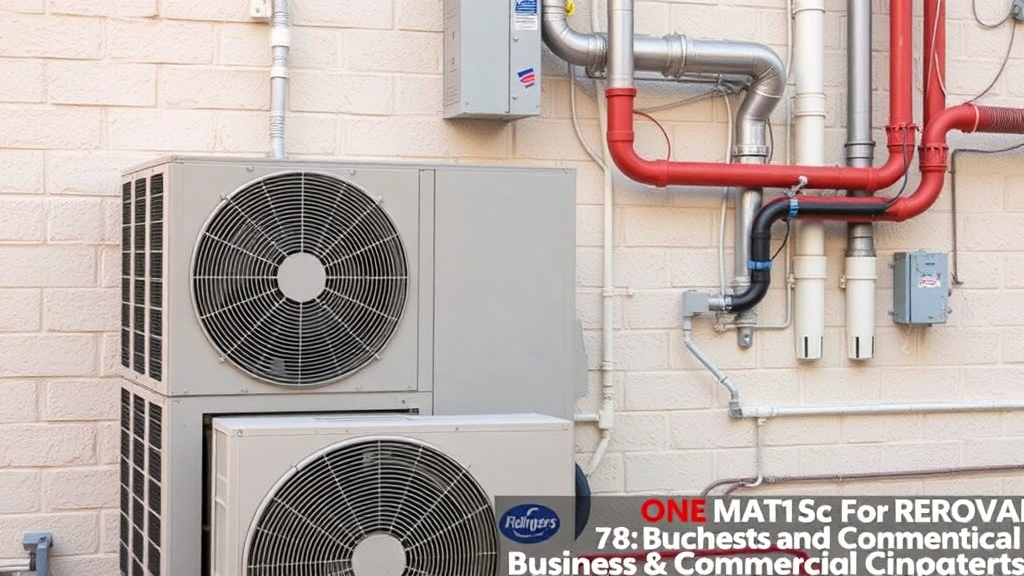
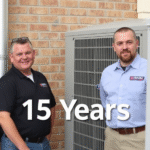
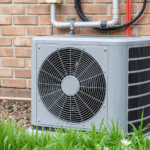

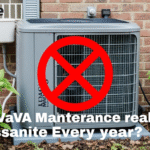
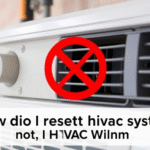
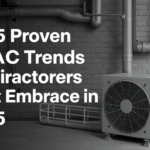
Leave a Reply